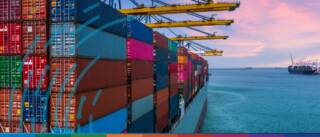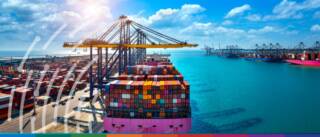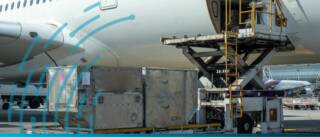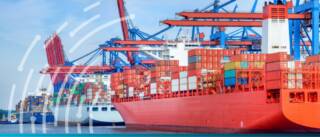‘Permacrisis’ was crowned word of the year by the editors of the Collins English Dictionary at the end of 2022, defined as “an extended period of instability and insecurity”. It seems an appropriate term to describe the state of global trade, finance, and supply chains as we enter 2023.
As 2023 unfolds, shippers are experiencing signs of relief from the supply chain upheaval over the past few years. U.S. container imports in December continued to close in on 2019 volumes, port delays continued to improve, the maritime capacity crunch has eased, and ocean shipping rates have approached pre-pandemic levels.
Over the past five years, the logistics industry experienced an explosion of new market entrants. This expansion started before COVID-19 and then accelerated dramatically over the last three years. Who are these new carriers, what distinguishes them from traditional carriers, and are they right for you?
There is no question that the turbulent global economy and the unending impact of the COVID-19 pandemic have wreaked havoc on China’s supply chain. The country’s economy is taking a hit with factories being forced to shut down, resulting in a significant disruption in international commerce.
Certainty has been in short supply in the world of shipping in recent years. Shippers, manufacturers, and carriers have all had to adapt to rapidly changing circumstances, from the lingering impacts of COVID to geopolitical conflicts, from stocking trends to industrial action.
I remember reading a quote which has stuck in my mind ever since – “Sharing among an entire ecosystem of innovative partners is a crucial step for modernisation.”
To learn more about their collaboration and the role that technology can play in the commodities industry, Trade Finance Global (TFG) spoke with Peter Johnston (PJ), senior manager digital and agtech at GrainCorp, and Sean Birrell, CTO and co-founder of Veridapt.
To learn more about UNCITRAL and the efforts to support the regulatory environment around digital trade, Trade Finance Global (TFG) spoke with Luca Castellani.
Cargo transportation is enjoying rapid growth due to increased globalisation and online ordering. The shipping industry accounts for a vast percentage of global trade, so finding ways to make it more sustainable is crucial.
Change is part of the modern world and innovation is one of the key drivers for change. The prevailing question is: are the ports in the right mindset towards innovation?
If you read the international shipping media during the final quarter of 2022, you would be forgiven for thinking that it’s “Game Over” for international trade.
The shift to a more digital form of globalisation changes who is participating, how business is done across borders, and where the economic benefits are flowing. This creates a new paradigm where not only large corporates, but also retailers, SMEs, and individuals can use international payments, integrated commerce, or trade interfaces regularly.
Large national infrastructure projects have rarely been delivered at the pace of the UK Freeport programme; in March 2020, the government launched its consultation document, and in March 2021 it was announced that, subject to completing the necessary authorisation processes, the above eight locations would become Freeports.
 Australia
Australia Hong Kong
Hong Kong Japan
Japan Singapore
Singapore United Arab Emirates
United Arab Emirates United States
United States France
France Germany
Germany Ireland
Ireland Netherlands
Netherlands United Kingdom
United Kingdom















